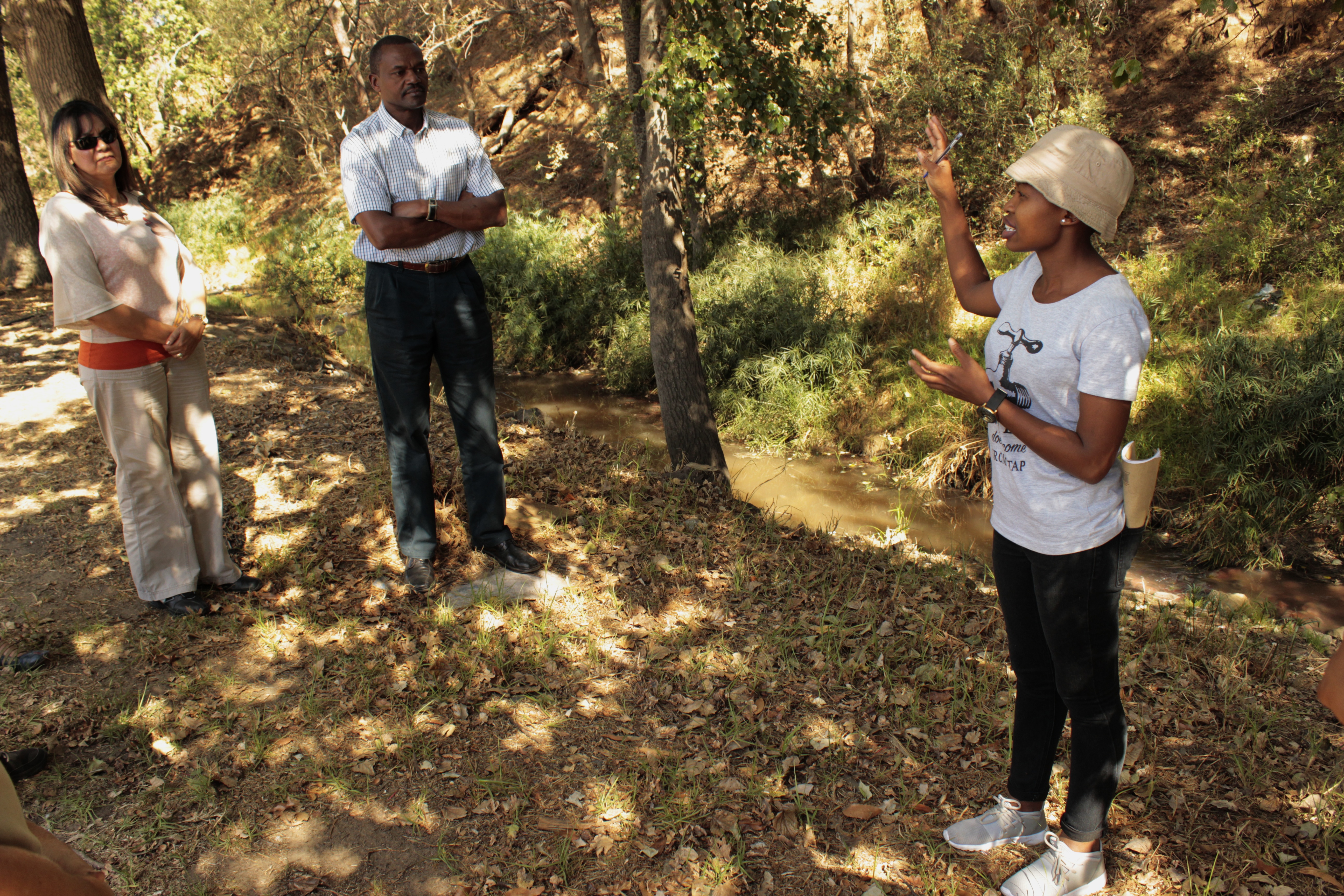The WWF is run at a local level by the following offices...
- WWF Global
- Adria
- Argentina
- Armenia
- AsiaPacific
- Australia
- Austria
- Azerbaijan
- Belgium
- Bhutan
- Bolivia
- Borneo
- Brazil
- Bulgaria
- Cambodia
- Cameroon
- Canada
- Caucasus
- Central African Republic
- Central America
- Central Asia
- Chile
- China
- Colombia
- Croatia
- Democratic Republic of the Congo
- Denmark
- Ecuador
- European Policy Office
- Finland
Our News
WWF-Kenya board explores water issues in Cape winelands
We recently hosted the WWF-Kenya board, invited by WWF-SA chairperson Valli Moosa, to strengthen ties and share knowledge and insights.
During their trip the board (comprising CEO Mohamed Awer, Richard Kaguamba and Mary Kiyombe) visited our offices in Braamfontein, Johannesburg, and Newlands, Cape Town, including a field visit to Stellenbosch in the Cape winelands to see some of WWF South Africa’s freshwater conservation work in action.
The Western Cape has experienced severe water shortages, and at the time of publication the City of Cape Town is reported to have approximately 60 days of dam water in reserve. This provided a stark backdrop to the water conservation work that was presented to the board by a team of WWF-SA representatives that included Dr Jackie King, WWF-SA board member and river expert, Theressa Frantz, head of WWF-SA’s environmental programmes unit, Christine Colvin, senior manager of WWF-SA’s freshwater programme, Klaudia Schachtschneider, programme manager: water stewardship, and Kholosa Magudu, project manager of the Breede River Project.

The field trip began with a visit to the Eerste River, where the group walked the iconic hanging bridge (picture above) over the relatively pristine water upstream.

Christine Colvin (left) and Richard Kaguamba (right)
Here Christine Colvin explained WWF South Africa’s three focal areas of work in freshwater: water source areas (where our water comes from), water stewardship (bringing together local government, corporates and local communities to make a difference in the management of water resources) and innovation (working to scale-up innovations for a water-efficient economy).
WWF South Africa’s ambition is to see better protection of the management of the eight per cent of land that provides 50% of our water.
From the Eerste River Park the group was transported to Plankenbrug, a tributary of the Eerste River, which runs alongside the formal and informal settlements of Kayamandi and Enkanini, for a view downstream. Here the influence of industrial and human waste was plain to see – and smell (see below).

The board members were treated to insights by Kholosa Magudu, who has worked with communities in areas such as Stellenbosch, Ceres and Pongola, providing support to them as they tackle issues such as waste, water and sanitation, leaks and the flow of open sewerage in their neighbourhoods.

Theressa Frantz (left) and Richard Kaguamba learn about the community water stewardship work that WWF South Africa is involved in, in KwaZulu-Natal and the Western Cape.
In Stellenbosch Khulusa has worked closely with Samela Zakhele, who is one of the Enkanini Water Hustlers, a group of young water champions who use drama and performance art to break the ice and educate their fellow community members to monitor water leaks, recycle and working collaboratively to access sanitary essentials such as toilet paper and plastics. These initiatives are gaining steam, but they still have some way to go in order to make an impact at scale.
The field trip concluded with a visit to Spier Wine Estate, a Conservation Champion in WWF South Africa’s Conservation and Wine Programme. Spier is one of the most picturesque wine farms, with a vibrant vision for sustainable future of ethical farming, healthy soil and happy people. Among its many environmental initiatives, it recycles all of its waste water and 80 per cent of its solid waste.
The farm also serves up tasty picnic lunches, which is how our group completed their tour.


© WWF-SA/Eitan Prince
The WWF-Kenya board was warmly received by Theressa Frantz (left) and Dr Jackie King (right). Richard Kaguamba (centre-left), Mohamed Awer (centre) and Mary Kiyombe (centre-right).